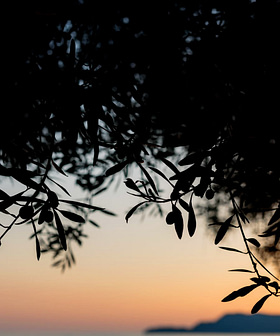Olive Farmers Find Creative Ways to Beat Labor Shortages as Harvest Begins

As the olive harvest gets underway across the Mediterranean basin, one of the challenges farmers across the region frequently face is finding enough workers to pick the olives.
With family units getting smaller – an aging population means many older adults are unable to endure the physical challenges of harvesting traditional groves while an increasing number of younger family members remain in school or university – many small-scale farmers struggle to get all their olives harvested in time to produce extra virgin olive oil.
Historically, schools would adjourn in regions where olives are a cornerstone of the local economy to allow children and adolescents to help their families with the harvest.
See Also:Italy Eases Some of the Burden of Hiring Seasonal WorkersWhile this tradition has largely been abandoned, there are exceptions. One example comes from Ruvo di Puglia, Italy, where high school teacher Valeria Gargineli decided to exempt students from exams during the harvest so that they could help their families.
“If you went to pick olives the day before, be sure that I will not question your absence in my class,” the teacher told all students aged 16 to 17.
According to local media, she justified the decision because students participating in the olive harvest would be too tired to study after as many as 12 hours picking olives and delivering them to a local mill.
Students who miss class must provide evidence, usually in photographs, to demonstrate they participated in the harvest.
“It is important to return to tradition and the connection with the land by going to harvest with grandparents or parents,” Gargineli said.
Supporters of these exemptions believe they are necessary to keep local olive farming and culture alive, with an increasing number of young people leaving rural areas to pursue other professions in cities.
Across the Adriatic Sea in Croatia, teachers in urban settings are also trying to give young students the experience of harvesting olives.
Last October, 80 students from the Matija Gubec International Primary School in Zagreb visited the olive grove of OPG Uroda in northern Dalmatia to participate in the harvest. After the olives were milled, each student was given a small bottle of olive oil to reward their efforts.
Along with recruiting students to assist in the harvest, local Croatian authorities have even been known to postpone prison sentences to allow the convicts-to-be to harvest.
In 2020, a court in the city of Zadar, in Dalmatia, postponed a 38-year-old man’s one-year prison sentence for a month to harvest his olives.
The man told the judge that his mother owned the family farm and could not find any workers to prepare for the harvest and pick the olives. The judge accepted the request.
“In the specific case, there is a legal basis and postponed the convict’s referral to prison for a period of one month, during which time the court expects the convict to complete his family affairs and start serving his prison sentence in Zadar prison,” she wrote.
In Australia, farmers of all types of crops, including olives, rely heavily on young foreign labor. An estimated 150,000 backpackers come to the country yearly on temporary harvest visas.
Many of these backpackers enter the country on a working holiday visa, requiring the holder to work at least 88 days in agriculture, hospitality or tourism over six months.
Often, working holiday visa holders fly to Australia in the summer to enjoy the beach and travel along the coast before participating in the harvest during the autumn and finishing off the visa stay with more expensive outings, including visits to Uluru or the Great Barrier Reef, funded by money earned during the harvest.








